Visa for Germany
Table of Contents
ToggleAre you considering a journey to Germany? Whether you’re aiming to explore its diverse culture through language study, pursue career opportunities, or even make it your permanent home, understanding the intricacies of a Visa for Germany is crucial. In this comprehensive guide, we’ll delve into various types of German visas, discuss essential document checklists for student visas, explore the costs associated with obtaining German citizenship, and share some invaluable tips and tricks to make your visa application process smoother.
Essential Requirements for Various Visa Options
This guide explains the different types of visas in simple terms. It covers important things like the visa you need for studying, what documents you’ll need, how much it costs to become a German citizen, and the various types of visas available. Whether you’re a student, job seeker, or dream of making Germany your home, this guide breaks it down for you in easy language.
For Job and Training Purpose:
- Work Visa
- Study Visa
- Vocational Training Visa
- Research Visa
- Visa for Self-Employed
- Opportunity Card
1. Work Visa
In Germany, a diverse range of visas cater to individuals seeking opportunities for work, study, research, vocational training, and self-employment. The Blue Card is designed for highly qualified non-EU professionals, while standard work visas are issued to those with employment contracts. For individuals with partially recognized qualifications, there is a specific visa category. Job seekers, both with academic backgrounds and vocational training aspirations, can obtain visas to explore opportunities in Germany.
- Blue Card: For highly qualified non-EU professionals.
- Work with a contract: Standard work visa with an employment contract.
- Work with partially recognized qualifications: For individuals with qualifications not fully recognized in Germany.
- Job seeker (academic): Visa for seeking employment with an academic background.
- Job seeker (vocational training): Visa for seeking vocational training opportunities.
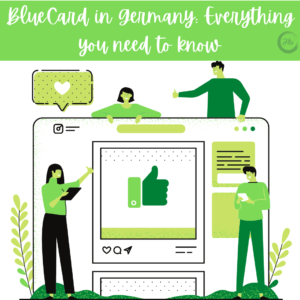
Blue Card Visa
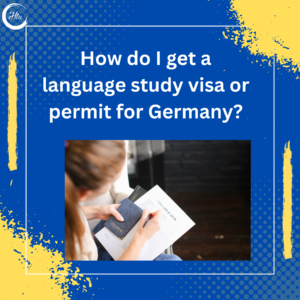
Language Study Visa
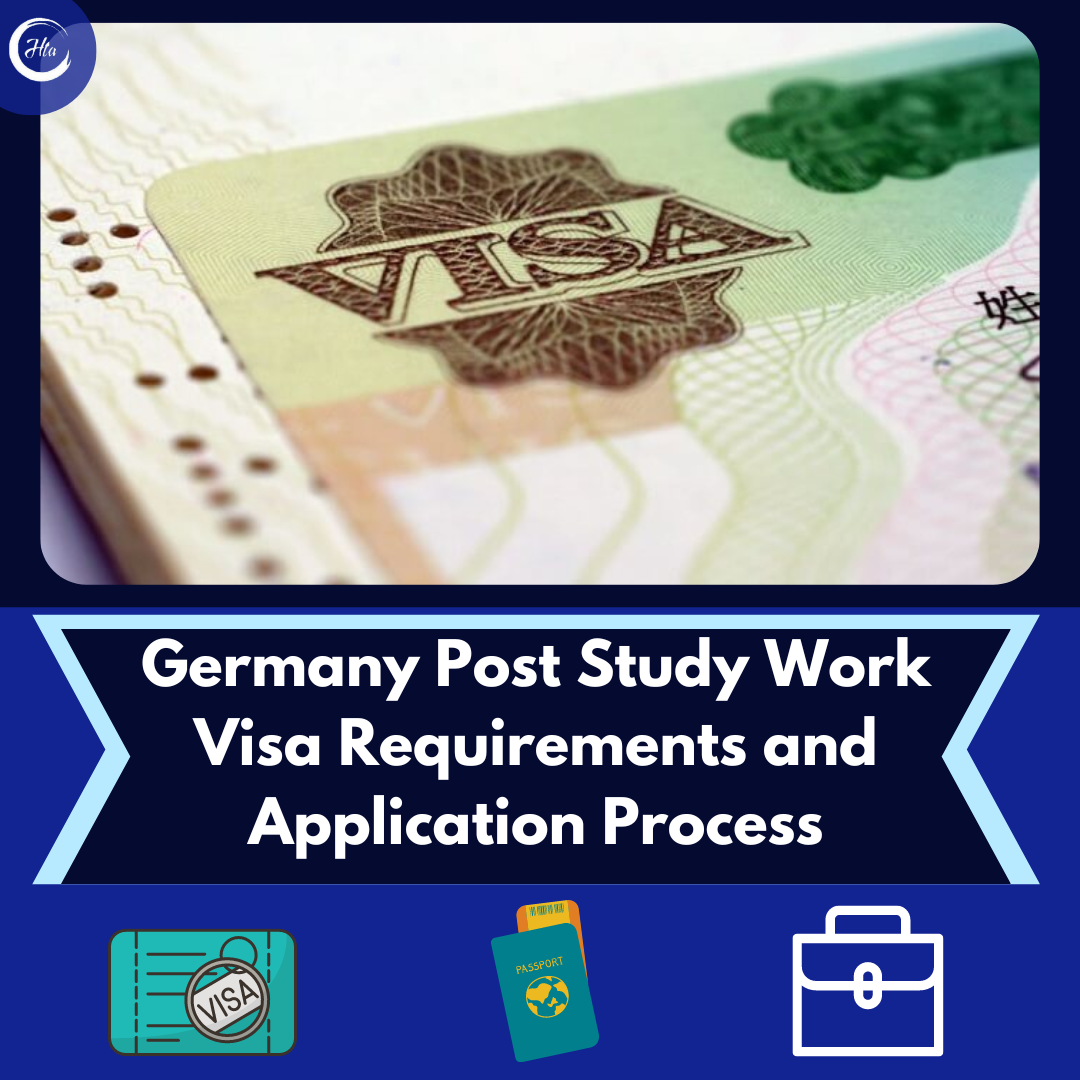
Post Study Work Visa
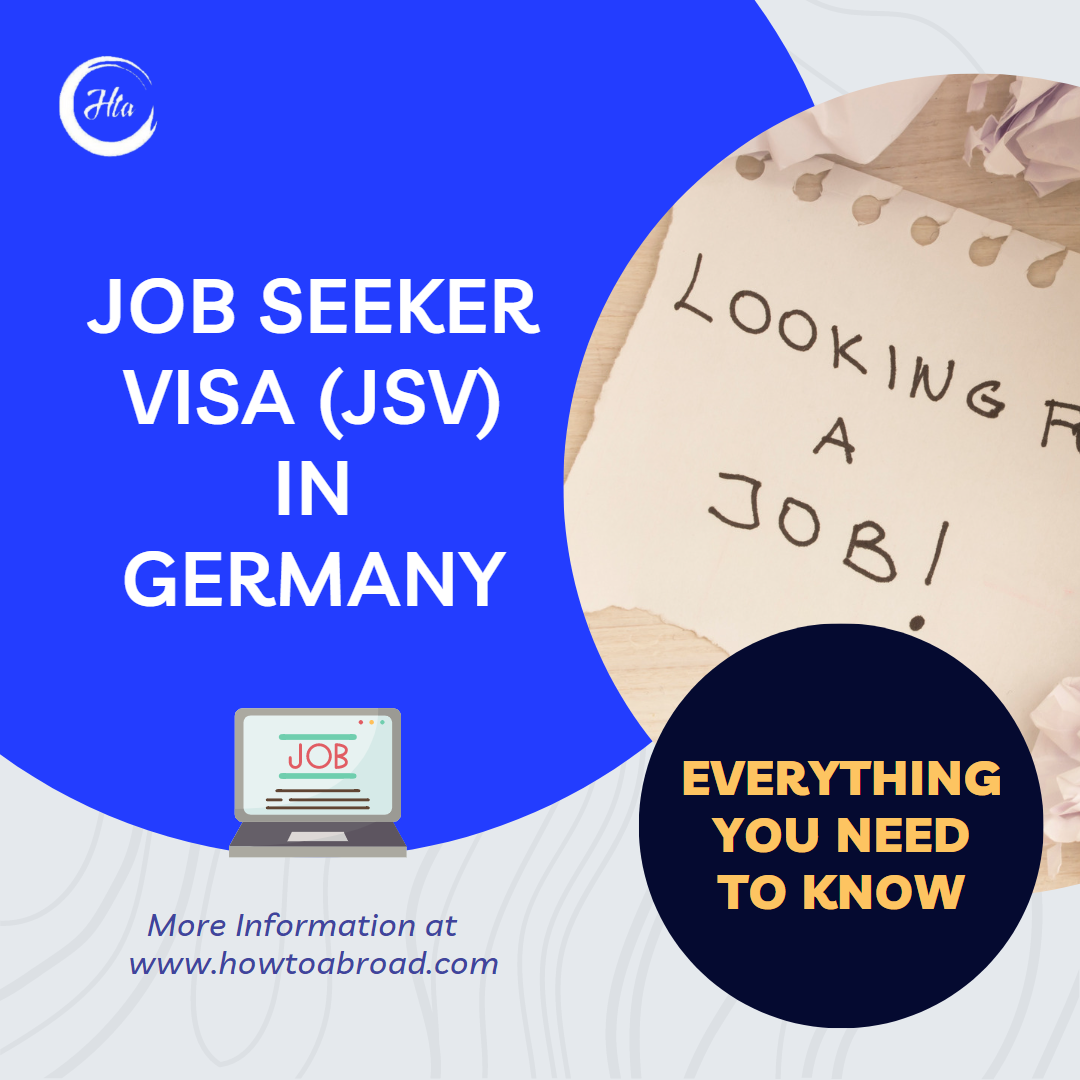
Job Seeker Visa (JSV)
2. Study Visa
Study visas are available for those with admission to a German university, as well as for those without admission who aim to secure acceptance while in the country. Additionally, visas combining language courses or internships with studies are an option, as well as a dedicated visa for pursuing a PhD. For individuals engaging in vocational training, there are visas with contracts as trainees or apprentices, and another category for those seeking a company with a vocational training program.
- With admission to a German university: For students accepted into a German university.
- Without admission: For individuals seeking admission while in Germany.
- With a prior language course or internship: Combining language courses or internships with studies.
- PhD: Visa for pursuing a doctoral degree.
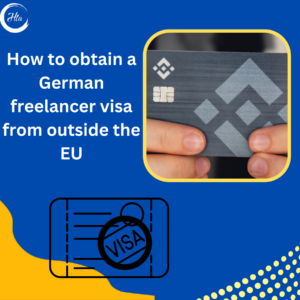
German Freelancer Visa

Language Study Visa
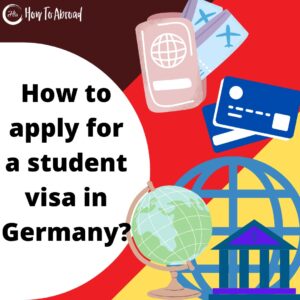
German Student Visa
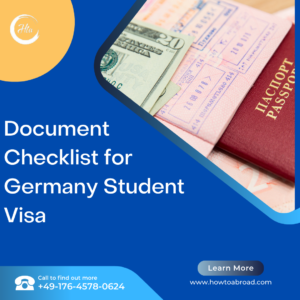
Document Checklist for Student Visa
3. Vocational Training Visa
Study visas are available for those with admission to a German university, as well as for those without admission who aim to secure acceptance while in the country. Additionally, visas combining language courses or internships with studies are an option, as well as a dedicated visa for pursuing a PhD. For individuals engaging in vocational training, there are visas with contracts as trainees or apprentices, and another category for those seeking a company with a vocational training program.
- With a contract as a trainee or apprentice: For individuals participating in vocational training programs.
- To look for a company with a vocational training program: Visa for searching and securing a vocational training position.
4. Research Visa
Research visas cater to individuals involved in scientific work or pursuing a doctoral degree, with the Blue Card also applicable for highly qualified researchers.
- Research: For researchers engaged in scientific work.
- PhD: Visa for individuals pursuing a doctoral degree.
- Blue Card: For researchers with a high level of qualification.
5. Visa for Self-Employed
Visas for the self-employed are available for those involved in liberal professions or looking to start their own businesses in Germany.
- Liberal professions: For individuals engaged in liberal professions.
- Start a business: For those starting and operating a business in Germany.
6. Opportunity Card
The Opportunity Card (Chancenkarte) allows skilled candidates to enter Germany to search for employment without needing a permanent job offer. To qualify, applicants must secure financial support for their stay and earn at least six points based on criteria like education, experience, language skills, age (35 or younger), and connection to Germany. Eligible candidates need at least two years of vocational training or a recognized university degree and German (A1) or English (B2) language proficiency. The card grants a one-year stay, extendable up to two years, and permits part-time or trial work (up to 20 hours per week) during the job hunt.
To join family members living in Germany:
Visas for joining family members living in Germany encompass various situations depending on the relationship and the nationality of the family member. These can be categorized as follows:
To join your Partner or fiancé
Individuals seeking to join their partners or fiancé(e)s can do so through marriage, whether to a German national or a foreign national within Germany. The option to join a spouse extends to cases where the partner holds EU/EEA nationality or is a foreign national.
Join your child
For those seeking to reunite with their children, different scenarios are considered, including joining German minor children, joining minor children with EU/EEA nationality, joining adult children with EU/EEA nationality, and reuniting with foreign refugee children.
Join your Parents
Family reunification extends to parents, allowing minor children to join parents with German nationality, children under 16 to join parents with foreign nationality, those between 16 and 18 to join parents with foreign nationality, and individuals under 21 to join parents with EU/EEA nationality, as well as those above 21 with EU/EEA nationality.
Each category has specific requirements and documentation, ensuring a structured process for family members seeking to join their loved ones in Germany.
Strategies and Advice for a Smooth Visa Application
Navigating the visa application process can be complex. Here, we share essential strategies for success. Learn how to secure appointments efficiently, excel in interviews, and steer clear of rejection. Whether it’s for leisure, education, or work, our tips will ensure your visa journey is hassle-free. Consider the following steps while applying for a visa:

How To Book Appointment?
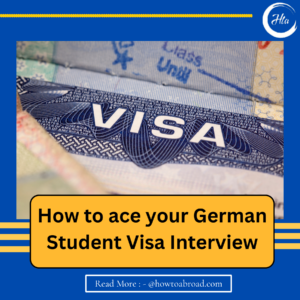
How to Ace Your Visa Interview?
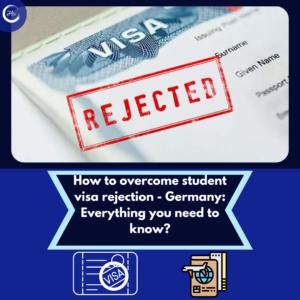
How to overcome Visa rejection?
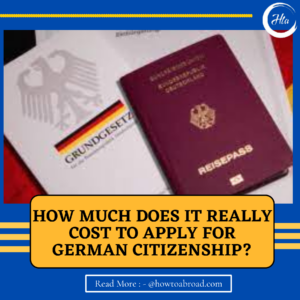
Cost to apply for German citizenship
In conclusion, obtaining a visa in Germany is a crucial step towards exploring the vibrant culture and opportunities in Germany. Proper documentation and preparation are key for a successful application.

